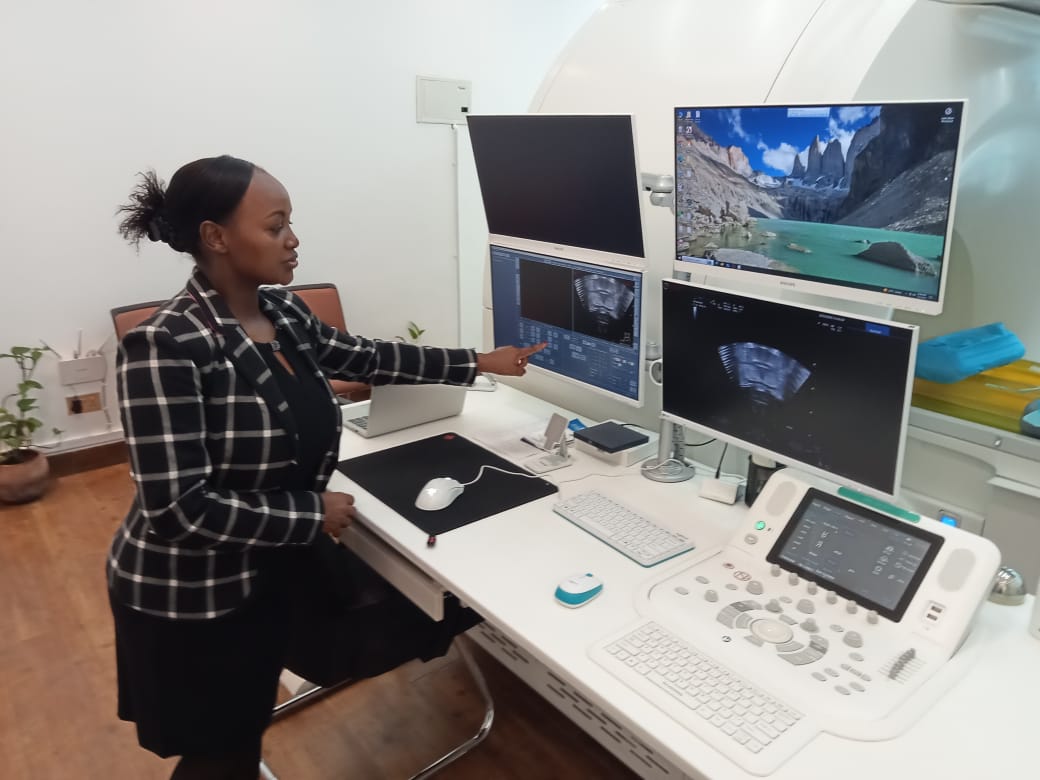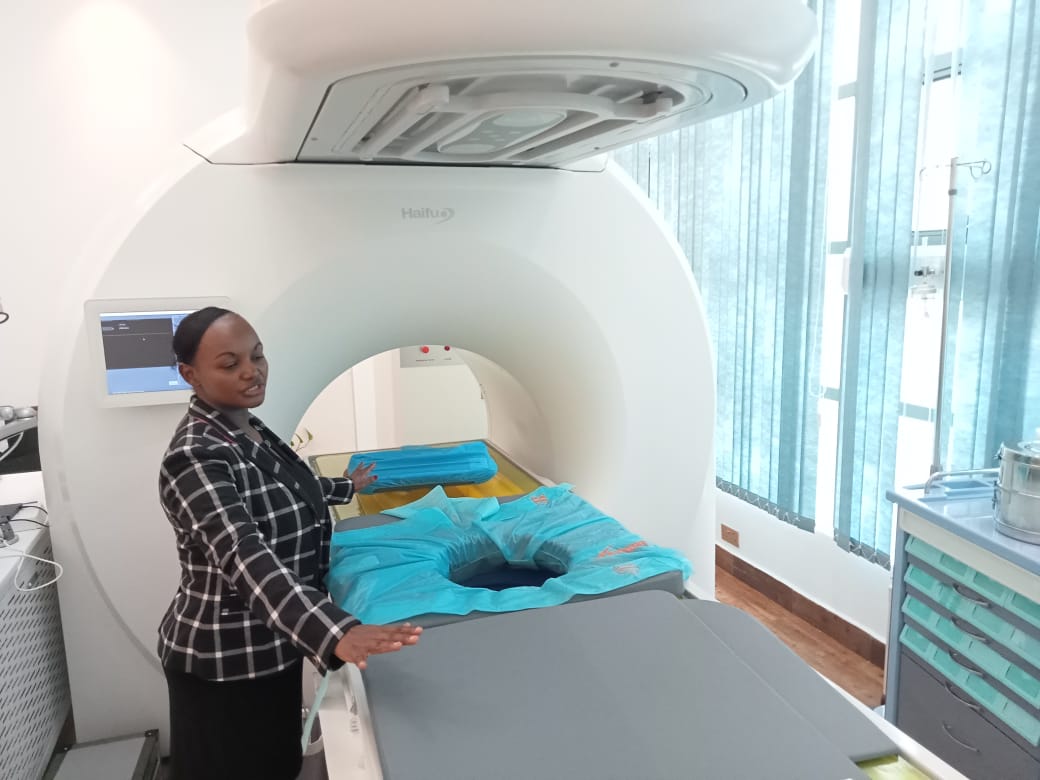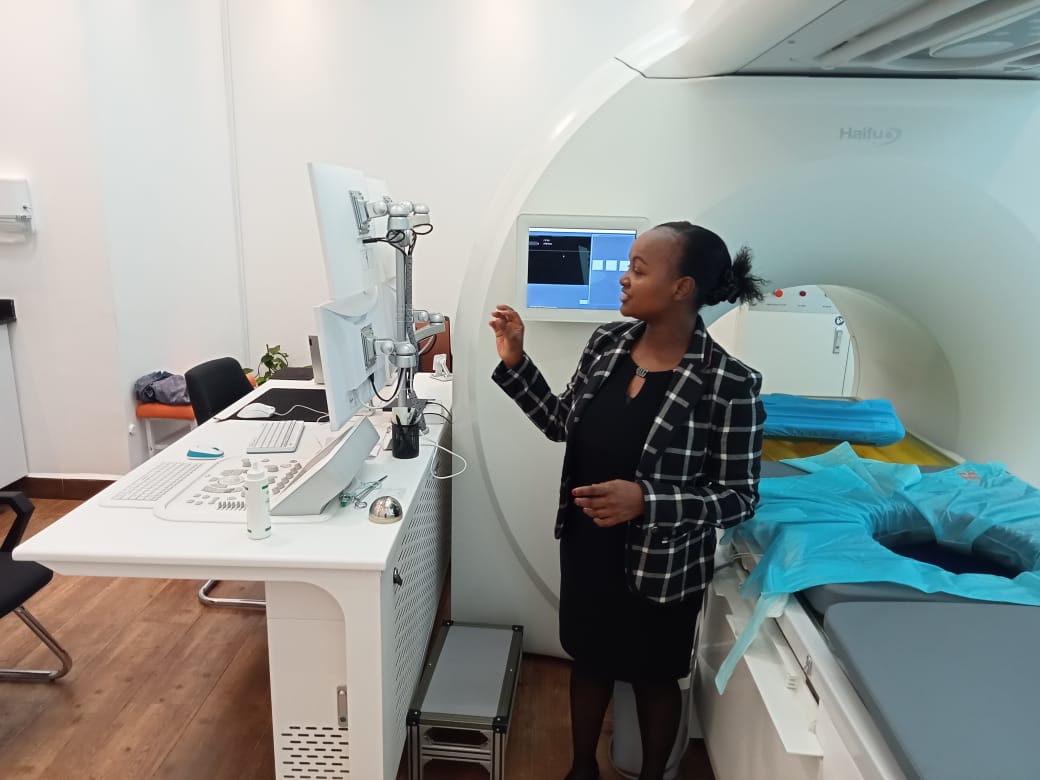

Rita (not her name) has been recovering at home after undergoing treatment for fibroids in February.
She had suffered from excessive bleeding and abdominal bloating for approximately seven years.
She is among several patients who have undergone high intensity focused ultrasound (Hifu) ablation, a groundbreaking non-invasive technology now being used to treat uterine fibroids in Kenya.
"I feel okay because the procedure went on very well and it was seamless, and I have had an easy recovery period," Rita said.
"I had a bit of abdominal discomfort and a bit of fatigue, which was resolved within the first and second week of my procedure."
She feels much better, with reduced abdominal bloating and increased energy levels.
Hifu is an innovative approach that employs precisely directed ultrasound waves, presenting a compelling alternative to traditional surgical procedures.

By offering effective treatment of fibroids without incisions, Hifu promises reduced recovery time and minimised surgical complications for patients.
The technology focuses high-frequency sound waves onto a specific target within the body, creating a concentrated energy beam.
The focused ultrasound allows clinicians to precisely target and treat diseased tissue, specifically fibroids, with remarkable accuracy.
Hifu technology focuses ultrasound waves to create a thermal lesion within a fibroid.
The localised heat, reaching temperatures of 65-100 degrees Celsius or higher, induces irreversible coagulative necrosis, effectively destroying the fibroid cells.
Crucially, the process occurs without damaging the surrounding healthy tissues, a process known as conformal ablation.
The president of the Kenya Obstetrical and Gynecological Society Dr Kireki Omanwa said fibroids and adenomyosis affect a significant number of women, particularly during their reproductive years.

Hifu Medical Services Nairobi houses one of the few such machines in Africa.
"We have one machine in Nairobi, one machine in Egypt, two in Nigeria, one in Tanzania, and one in South Africa, making a total of six machines in the whole of Africa," Dr Omanwa said. Over 3,000 cases have been treated in Africa.
"The way to treat fibroids traditionally is by surgery – open or laparoscopically. This entails taking patients to the theatre, where we cut them so that we are able to get to the fibroids and remove them, but the Hifu method is non-invasive," he said.
With Hifu, patients don't go to the theatre, so they don't need anesthesia or recovery time in the ward.
This has a huge advantage for the patients, both physically and psychologically, the medic said.
Adenomyosis is a problem whereby women have very painful periods because the lining of the endometrium is embedded in the uterus.
Hifu is a good method for women who don't want to have surgery and want to continue having children.
Omanwa advised women experiencing problems with fibroids to inquire about Hifu from their gynecologists.
"As the Kenya Obstetrical and Gynecological Society, we are very happy that we have another method of treating women."
The Hifu system was developed by Chongqing Haifu Medical Technology Company, with the first treatment conducted in 1997.











